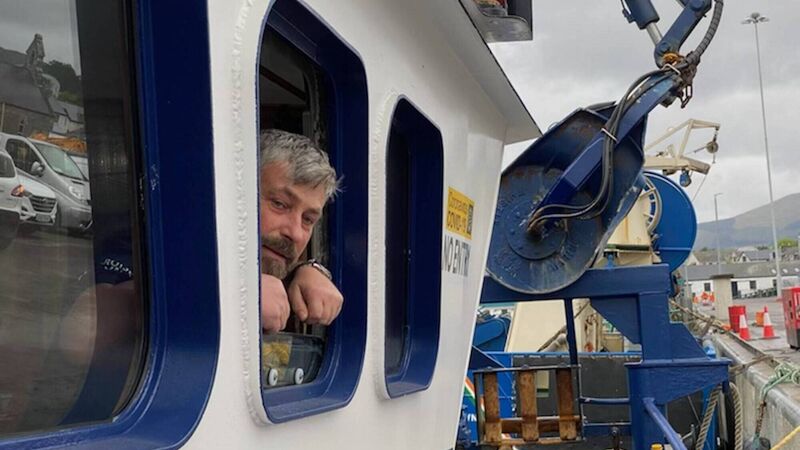'I think we are the last generation': The fishing industry's struggle to stay afloat

Damien Turner, skipper of the Roise Catriona, part of a flotilla of eight trawlers from Castletownbere making their way to the Port of Cork for a protest on Wednesday. Picture: Neil Michael











